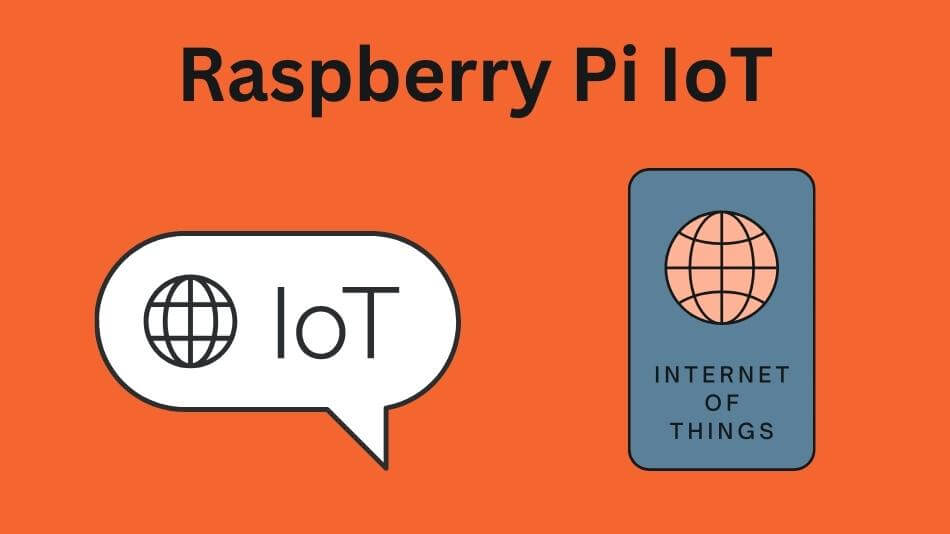Best SSH IoT Platform For Raspberry Pi: A Comprehensive Guide
With the rise of the Internet of Things (IoT), Raspberry Pi has become one of the most popular platforms for developers and hobbyists. When it comes to securing your IoT devices, using the best SSH IoT platform for Raspberry Pi is essential. Secure Shell (SSH) provides a secure channel for remote access, enabling you to manage your devices safely from anywhere in the world.
The importance of SSH cannot be overstated, especially when working with IoT devices that are often connected to sensitive networks. This article will explore the top SSH IoT platforms for Raspberry Pi, their features, and how they can enhance the security of your projects. Whether you're a beginner or an experienced developer, this guide will help you choose the right platform for your needs.
By the end of this article, you'll have a clear understanding of what to look for in an SSH IoT platform and how to implement it effectively on your Raspberry Pi. Let's dive in!
Read also:Joyymei Ed A Comprehensive Guide To Understanding And Overcoming Erectile Dysfunction
Table of Contents
- Introduction
- What is SSH?
- Raspberry Pi and IoT
- Criteria for the Best SSH IoT Platform
- Top SSH IoT Platforms for Raspberry Pi
- Comparison of SSH IoT Platforms
- Installation Guide
- Security Best Practices
- Troubleshooting Common Issues
- Future Trends in SSH IoT Platforms
- Conclusion
What is SSH?
SSH, or Secure Shell, is a cryptographic network protocol that allows secure communication over an unsecured network. It provides encryption for data transfer, ensuring that sensitive information remains protected from unauthorized access. For Raspberry Pi users, SSH is a crucial tool for managing IoT devices remotely.
Key Features of SSH
- Encryption for secure data transfer
- Authentication methods (passwords, public keys)
- Support for various network services
- Compatibility with different operating systems
Raspberry Pi and IoT
Raspberry Pi is a versatile single-board computer that has revolutionized the IoT landscape. Its affordability, small size, and compatibility with various sensors and modules make it ideal for IoT projects. By integrating SSH into Raspberry Pi-based IoT systems, developers can ensure secure communication and remote management.
Why Use Raspberry Pi for IoT?
- Cost-effective hardware
- Wide range of supported operating systems
- Large community support
- Flexibility for customization
Criteria for the Best SSH IoT Platform
When selecting an SSH IoT platform for Raspberry Pi, several factors should be considered. These include ease of use, security features, scalability, and community support. Below are the key criteria for evaluating the best SSH IoT platform:
- Security: The platform should offer robust encryption and authentication methods.
- Compatibility: It must be compatible with Raspberry Pi and its operating systems.
- User Interface: A user-friendly interface simplifies the setup and management process.
- Scalability: The platform should support multiple devices and projects.
- Documentation: Comprehensive documentation and tutorials are essential for troubleshooting and learning.
Top SSH IoT Platforms for Raspberry Pi
1. OpenSSH
OpenSSH is one of the most widely used SSH platforms for Raspberry Pi. It is open-source, highly secure, and offers a range of features for managing IoT devices. OpenSSH supports various authentication methods, including public key authentication, which enhances security.
2. PuTTY
PuTTY is a popular SSH client for Windows users. It provides a simple interface for connecting to Raspberry Pi devices and managing IoT projects. While primarily a client-side tool, PuTTY can be paired with OpenSSH on the server side for a seamless experience.
3. Mosh (Mobile Shell)
Mosh is an SSH alternative designed for mobile devices. It offers improved performance over unstable networks, making it ideal for IoT projects that require remote access from various locations. Mosh supports automatic reconnection and roaming, ensuring uninterrupted access to your Raspberry Pi.
Read also:Exploring 7 Movierulz 2024 Ndash Download Telugu Movies Safely And Legally
4. Bitvise SSH Client
Bitvise SSH Client is a feature-rich tool for managing IoT devices on Raspberry Pi. It supports SFTP file transfer, terminal emulation, and X11 forwarding, providing a comprehensive solution for remote management. Bitvise is particularly useful for users who need advanced features and customization options.
Comparison of SSH IoT Platforms
Selecting the right SSH IoT platform depends on your specific needs and preferences. Below is a comparison of the top platforms based on key criteria:
| Platform | Security | Compatibility | User Interface | Scalability |
|---|---|---|---|---|
| OpenSSH | High | Excellent | Command-line | Excellent |
| PuTTY | Good | Good | GUI | Good |
| Mosh | High | Good | Command-line | Excellent |
| Bitvise | High | Good | GUI | Excellent |
Installation Guide
Step-by-Step Installation of OpenSSH on Raspberry Pi
Installing OpenSSH on Raspberry Pi is a straightforward process. Follow these steps to set up SSH on your device:
- Update your Raspberry Pi's operating system using the command:
sudo apt update && sudo apt upgrade. - Enable SSH by running:
sudo raspi-configand navigating to "Interfacing Options"> "SSH"> "Enable". - Reboot your Raspberry Pi:
sudo reboot. - Connect to your Raspberry Pi using an SSH client like PuTTY or Terminal.
Security Best Practices
Ensuring the security of your SSH IoT platform is critical for protecting your Raspberry Pi-based projects. Follow these best practices to enhance security:
- Use strong, unique passwords or public key authentication.
- Disable root login to prevent unauthorized access.
- Limit access to specific IP addresses using firewall rules.
- Regularly update your SSH software and operating system.
Troubleshooting Common Issues
While using SSH for IoT projects, you may encounter some common issues. Below are solutions to frequently encountered problems:
- Connection Refused: Ensure that SSH is enabled and the correct IP address is used.
- Authentication Failed: Double-check your username, password, or public key configuration.
- Timeout Errors: Check your network connection and adjust SSH timeout settings.
Future Trends in SSH IoT Platforms
The evolution of SSH IoT platforms is driven by advancements in technology and increasing demands for secure communication. Future trends in this field include:
- Integration with cloud-based services for enhanced scalability.
- Adoption of quantum-resistant encryption algorithms.
- Development of AI-driven tools for automated security management.
Conclusion
Choosing the best SSH IoT platform for Raspberry Pi requires careful consideration of your project's requirements and security needs. OpenSSH remains a top choice for its robust features and compatibility, while alternatives like PuTTY and Mosh offer additional benefits for specific use cases.
We encourage you to experiment with different platforms and find the one that best suits your needs. Don't forget to implement security best practices to protect your IoT devices. Share your thoughts and experiences in the comments section below, and explore other articles on our site for more insights into Raspberry Pi and IoT development.
Article Recommendations


